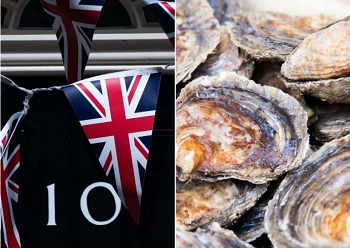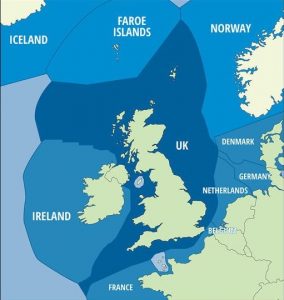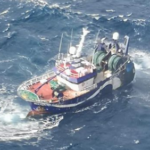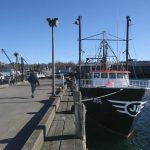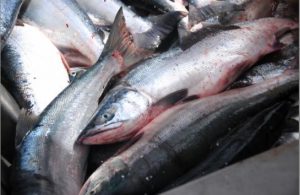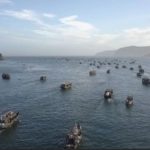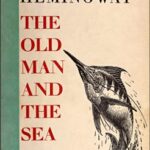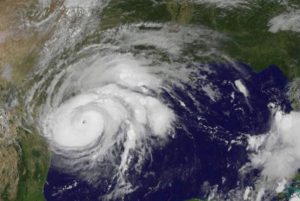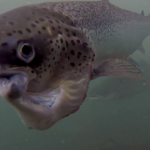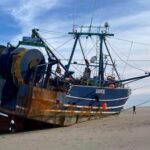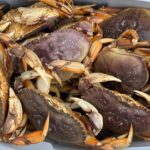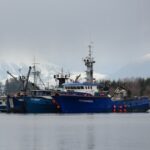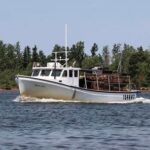Tag Archives: fishing rights

Indigenous fishermen to assert treaty right for lobster fishing during court case
The stage is now set in Nova Scotia for another round in the court battles over Indigenous fishing rights. The lawyer for four Mi’kmaw fishermen appeared by phone Tuesday in Yarmouth provincial court. The men admit they were fishing for lobster aboard the vessel Charlene Helen off Pinkney’s Point, Yarmouth County, in September 2019. The area they were fishing in is part of Lobster Fishing Area 34, which was closed to fishing activity at the time. >click to read< 08:56
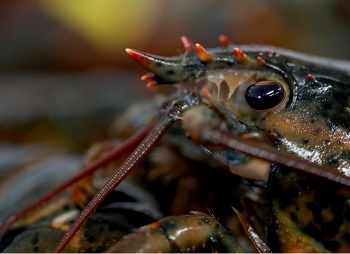
Canadian government likely has not met constitutional obligations to First Nations
The precedent set by the Supreme Court of Canada in the Marshall cases recognizes the First Nations’ right to fish under the Peace and Friendship Treaties but also allows for limitations by the government for the purpose of conservation. The Badger decision set out the parameters for applying those limitations and puts the onus on the federal government to show that the infringement of treaty rights is justified, and to consult with First Nations to find a solution that puts the minimum restrictions on Indigenous rights. The 13 Nova Scotia First Nations chiefs have unanimously rejected Jordan’s plan for a number of reasons, a major one being a lack of consultation. >click to read< 11:45

P.E.I. Mi’kmaw chiefs denounce DFO’s ‘moderate livelihood’ fishery plan
A news release from P.E.I.’s Mi’kmaw chiefs Thursday called the plan “both unlawful and disrespectful.” “DFO’s continued paternalistic approach to our rights-based fishery goes against the very spirit of reconciliation,” Abegweit First Nation Chief Junior Gould said in the release. Lennox Island First Nation Chief Darlene Bernard said she was “blindsided” by Fisheries Minister Bernadette Jordan’s announcement, especially since she had taken part in a roundtable discussion with Jordan Wednesday during which they talked about the moderate livelihood fishery. >click to read< 09:36

DFO Path Forward Rejected – ‘We’re going to establish our own fishery’
“We’re going to establish our own fishery and our seasons outside of theirs,” Chief Mike Sack said Wednesday. “We’ll push our own season and determine what those months are going to be.” Sack was responding to a letter from Fisheries Minister Bernadette Jordan that said any moderate livelihood fishery must operate under the rules and regulations of DFO’s commercial fishery. Then the letter spells out the rules under which any moderate livelihood fishery would be negotiated and what Canada is “prepared” to allow,,, Sack said none of that was acceptable. >click to read< 07:17

Judge Drops Shinnecock Fishermen’s Federal Lawsuit
A federal judge has dismissed a lawsuit filed by three Shinnecock Indian Nation fishermen who have fought to protect their indigenous fishing rights in eastern Long Island. David Taobi Silva, Jonathan Smith and Gerrod Smith were seeking $102 million in punitive damages, as well as temporary and permanent injunctions to end what they call racial discriminatory practices by state and local law enforcement. “[The men had] not put forward sufficient evidence to establish that the state proceeding is motivated by a desire to harass or is conducted in bad faith,” U.S. District Court Judge Sandra Feurestein said in her ruling. >click to read< 15:02
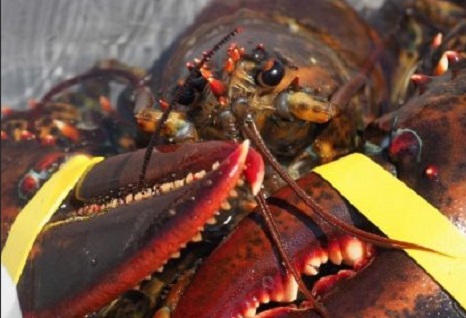
Canada: History shows a path to resolve lobster fisheries dispute
As we reflect on recent violence in Nova Scotia over the lobster fisheries, it’s important to know if there are any precedents around the core issues and if prior instances can help guide us now. The case of the Saugeen Ojibway of the Great Lakes provides some particularly useful insights to help reach a settlement to the lobster fisheries dispute. Conflict between Indigenous peoples along the Great Lakes and the state has been around since the rise of non-Indigenous commercial and sport fishing around the 1830s and 1840s. In the 1990s, things came to a head,,, >click to read< 08:29
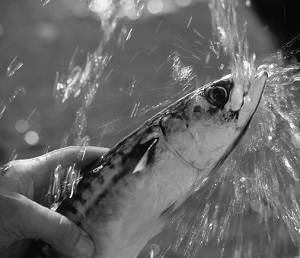
The World’s Supply of Mackerel Is on the Move
The Northeast Atlantic mackerel is a small fish with grey or greenish-blue scales and tigerlike black stripes from mouth to tail. Lacking a swim bladder, the gas-filled organ that helps most fish move up and down in the water, the mackerel would sink and die if it ever stopped. So it is always on the move, looking for plankton, crustaceans, and other small fish. In recent years, the mackerel’s unceasing motion and radically increased abundance have taken it farther north, to Greenland or Svalbard, which lies between Norway and the North Pole, and northwest, to Icelandic waters. And when the fish turned up, the Icelanders took advantage. By tradition, their nation had no claim to this fish, but starting in the mid-2000s, when the lucrative fish arrived in great numbers, they struck. >click to read< 11:09
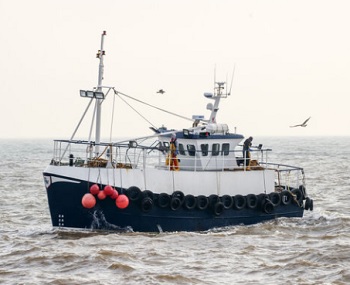
Cork TD criticizes ‘shocking’ Brexit deal as value of fishing rights loss revised
A new study of the fishing rights subject to Britain’s trade deal with the European Union (EU) published by the Department of Agriculture, Food and the Marine has contradicted the Minister for Agriculture, Charlie McConalogue. When the Brexit trade deal was announced on Christmas Eve, Mr McConalogue said the fishing rights going to UK fishermen would cost €35m per year. However,,, Independent TD Michael Collins has said this agreement is not fair and described the Brexit trade deal as a “shocking deal” for Irish fishermen. “[French] President Macron has come out and was one of the first to praise the deal of course for his own fishermen but sadly it was a shocking deal for Irish fishermen. >click to read< 16:02
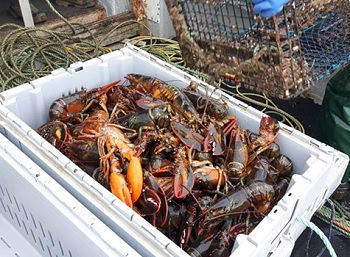
Livelihood lobster fishing cast adrift: How DFO’s inaction has history repeating itself
Its resources are in high demand by Indigenous and non-Indigenous fishers alike, and for more than 20 years it has seen tensions between the two communities turn from boil to simmer, to boil again. Recently, it made headlines internationally. Tensions in the area erupted into violence and destruction after the Sipekne’katik First Nation launched its own, self-regulated fishery, outside of the commercial season, based on Mi’kmaq treaty rights. To Alex McDonald, one of the oldest still-fishing Indigenous lobster boat captains of the area, the chaos this year was nothing new. >click to read< 08:14
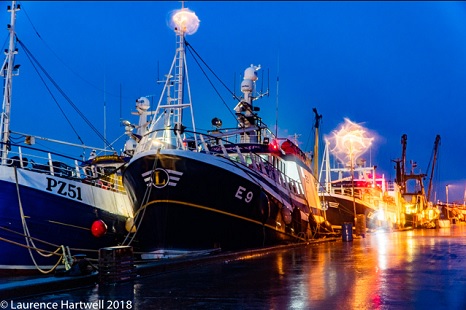
Brexit: What does the trade deal mean for fisheries? All the Fish related bits in the Brexit deal to read at your leisure: Articles 1-19
Contrary to many dire predictions, we finally have a Brexit trade deal, and with it an agreement on how the UK and EU will manage shared fisheries into the future. The fishing industry has experienced an unusually high profile since the Brexit referendum, but this reached dizzy heights over the last few months of 2020, as disagreements over fishing quotas and access were said to be the final barrier to a wider agreement. So now that the deal has been landed, how does the catch measure up? >click to read< All the Fish related bits in the Brexit deal to read at your leisure: Articles 1-19. – Article FISH.1: Sovereign rights of coastal States exercised by the Parties. The Parties affirm that sovereign rights of coastal States exercised by the Parties for the purpose of exploring, exploiting,,, >click to read< 08:40
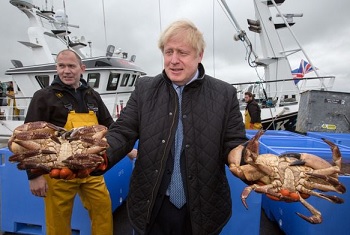
UK fishermen mock ‘laughable’ EU demand to extend Common Fisheries Policy for a year
In a statement this morning, Ms MacDonald made clear EU vessels landed 10 times more fish from UK waters than UK vessels do from theirs. It comes EU chief negotiator Michel Barnier stressed a trade deal between the UK and European Union was still possible Talks were extended on Sunday after Boris Johnson and European Commission president Ursula von der Leyen agreed to continue the process despite major differences still remaining. For months, the talks have been deadlocked on the issues of fishing rights which have plagued fishing chiefs as well as state aid and the level playing field. >click to read< 11:59

Sipekne’katik First Nation Chief frustrated, ceases lobster fishery talks with feds
In a letter sent Wednesday to Fisheries Minister Bernadette Jordan, Sipekne’katik Chief Mike Sack says the department has neither the “desire nor the ability” to recognize and implement the Mi’kmaq band’s constitutionally protected treaty right to fish. Sack expresses frustration with the nation-to-nation discussions and says Ottawa has tried to lump his band’s treaty rights in with regulation of commercial licenses. A spokesperson in the minister’s office was not immediately available for comment. >click to read< 14:31

Owner Operator/Fleet Separation Policies: Measures to prevent corporate takeover of Atlantic inshore fleets go into law
Wednesday, the Department of Fisheries and Oceans published amended Atlantic Fishery regulations that include the so-called owner-operator and fleet-separation policies. The owner-operator policy requires the eligible holder of a fishing licence to be the beneficiary of the licence, and fleet separation prevents processing companies and buyers from also holding fishing licences. “It’s a great day for the inshore fishery and we’re super happy with the results of this announcement,” >click to read<14:16 To read more about this, >click here<
Minister Jordan strengthens protections for inshore commercial fish harvesters on East Coast – Under the authorities granted by the modernized Fisheries Act, Fisheries and Oceans Canada has amended the Atlantic Fishery Regulations, 1985 and the Maritime Provinces Fishery Regulations to clarify the rules governing inshore licences and create new enforceable requirements. >click to read<
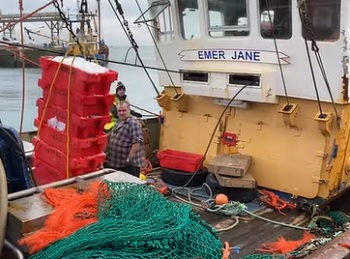
Efforts to Break Deadlock Continue, Kilmore Quay Outlines its Fears – Last-ditch post-Brexit trade talks to resume between EU, UK
As efforts continue to agree a final Brexit deal, two Wexford fishermen have outlined on RTÉ Radio Countrywide how devastating loss of access to British waters will be. “Brexit is going to affect every port and harbour where fishing is the lifeblood of communities,” Will Bates (43), a third-generation fisherman,, Video, >click to read< 12:57
Last-ditch post-Brexit trade talks to resume between EU, UK – European Union and British negotiators Sunday entered what is potentially the final attempt to strike a deal over future trade ties, even though “significant differences remain” on three essential points. With less than four weeks remaining before the Jan. 1 cutoff day, >click to read<

RCMP: Two charged following alleged incidents in St. Mary’s Bay during fisheries dispute
The charges were laid under the Vessel Operation Restriction Regulations for unsafe activity in St. Mary’s Bay near Saulnierville. On Nov. 26, the RCMP charged 34-year-old Brandon Alexander Maloney, of Hants County, for unsafe operation of a vessel in relation to an incident that took place Sept. 20 in St. Mary’s Bay. Maloney was a fisheries manager for Sipekne’katik at the time of the alleged incident. He has since been elected to council and no longer holds that manager position. Also charged is 26-year-old Shaquest India Miller of Yarmouth County, for unsafe operation of a vessel, relating to an Oct. 12 incident, in St. Mary’s Bay. Both are scheduled to appear in Digby Provincial Court on Feb. 15. >click to read< 17:23

Replenishment, or Misguided Retribution?! Trouble brewing ahead of start to Nova Scotia fall lobster season
The recent seizure of lobster traps in St. Marys Bay by federal officials could lead to big trouble on the water. Chief Mike Sack of the Sipekne’katik First Nation says Indigenous fishers whose traps were taken last weekend and on Wednesday will replace them by taking the traps of commercial fishers when the fall season opens Monday in southwestern Nova Scotia, a huge event known as Dumping Day. “Dumping Day is going to be about 400,000 traps that our people get to pick from to replenish our traps,” Sack said in an interview, referring to the start of Canada’s largest and most lucrative lobster fishery. >video, click to read< 08:02
 Tension could rise again on Monday in lobster dispute on east coast – The ongoing dispute between Indigenous and non-native lobster fishers could get tense once again. Last weekend, and on Wednesday, agents from Fisheries and Oceans Canada (DFO) seized hundreds of Indigenous lobster traps, ostensibly because the traps were set before the season opens on Monday.. >click to read<
Tension could rise again on Monday in lobster dispute on east coast – The ongoing dispute between Indigenous and non-native lobster fishers could get tense once again. Last weekend, and on Wednesday, agents from Fisheries and Oceans Canada (DFO) seized hundreds of Indigenous lobster traps, ostensibly because the traps were set before the season opens on Monday.. >click to read<
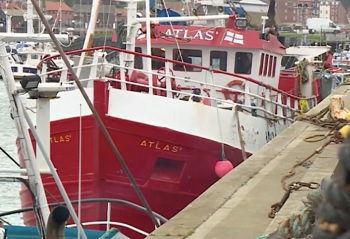
Whitby’s trawlermen urge the government to stand firm in the ongoing Brexit fishing rights negotiations
Richard Brewer has fished out of Whitby for decades. In the last 22 years he has had his son by his side, also called Richard. During those years both say they have seen the destruction of the British fishing industry, which they now want back. Indeed Richard Jr. said “when I was at school this harbour had more than 20 trawlers, now there’s only one… ours. That can’t be right.” His father has always felt that the fishing industry was “sold down the river” when Britain first entered the EU and he blames the European quota system for ruining the sector. Video, >click to read< 14:52
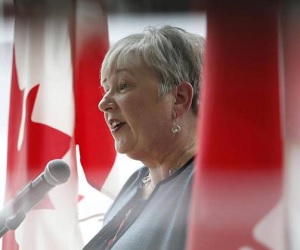
DFO’s Jordan defends government actions during violence over Mi’kmaw fishery – Chiefs say DFO only looking out for non-Indigenous fishers
Despite admitting she hasn’t read the entire Marshall decision, Department of Fisheries (DFO) Minister Bernadette Jordan says her government is committed to implementing the Mi’kmaq Nation’s treaty right to catch and sell fish commercially in their traditional territories across the Maritimes, which the landmark ruling guarantees. >click to read< Mi’kmaw chiefs say DFO only looking out for non-Indigenous fishers – Mi’kmaw chiefs appearing before a Parliamentary committee looking into fishing rights say the Department of Fisheries and Oceans (DFO) is not upholding its treaty obligations and is only looking to appease non-Indigenous fishers rather than implementing Mi’kmaw rights. >click to read< 11:02
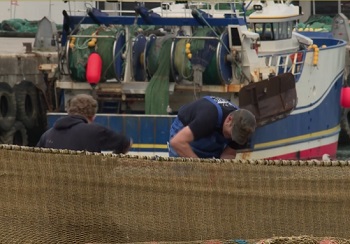
Fears in France for future of fishing industry after Brexit
Fishermen in northern France have enjoyed nearly 50 years of shared seas during Britain’s membership of the European Union. But a no-deal Brexit is threatening to sink the livelihoods of people in Boulogne-sur-Mer who have been fishing all their lives. “If we don’t have an agreement it will be catastrophic,” says fisherman Laurent Merlin. His haul of flatfish and crabs will be at risk if any deal between the UK and the EU does not guarantee access to the seas off Britain. >video, click to read< 19:45

RCPM say a 74-year-old man faces assault charges in violent clash at Nova Scotia lobster pound
The RCMP says Yvon Thibault, of Digby County, faces two counts of assault stemming from an incident in New Edinburgh, N.S., on Oct. 14. A pound that stored Indigenous-caught lobster was ransacked as part of two clashes that police have said involved roughly 200 people at wharves in New Edinburgh and in Middle West Pubnico, N.S. Another man was arrested last month for allegedly assaulting Sipekne’katik Chief Mike Sack, also on Oct. 14., but RCMP Sgt. Andrew Joyce says there were two other assault victims that day and Thibault is not accused of assaulting Sack. >click to read< 13:21

‘We won’: Clearwater Seafoods deal gives Mi’kmaq control of lucrative ocean stretch
Early this week, leaders of the Membertou and Miawpukek First Nations, both of which are Mi’kmaq communities, reached an agreement to buy Nova Scotia-based Clearwater Seafoods in a deal worth C$1bn (£580m). Heralded as the “single largest investment in the seafood industry by any Indigenous group in Canada”, the landmark deal comes at a critical moment for Indigenous communities in the region, as tensions remain high over their treatied fishing rights. >click to read< 15:48
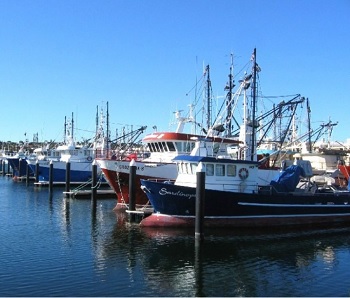
South Australian reforms (catch shares) to put two-thirds of local commercial fishers out of business
A petition to address “loopholes” in the South Australian Government’s Marine Scalefish Fishery reforms has been launched by stakeholders who believe the changes will render the majority of local commercial fishers unviable. With just four days until the Government’s licence buyback scheme finishes, the Marine Fishers Association (MFA) has warned licences are at risk of being bought up by corporate traders,, “Unless loopholes are addressed, over two-thirds of our local commercial fishers will be unable to remain in business and South Australia risks losing its local fishing industry forever,” the MFA said. “This has already happened in other industry species; offshore and interstate investors already control over 65 percent of our rock lobster industry.” >click to read< 13:40

Lobster dispute is the culmination of government inaction
Prime Minister Justin Trudeau: “There remains no more important relationship to me and to Canada than the one with Indigenous peoples.”,,, Imagine the thrilling new drama, Lobster Trap, inspired by real events and probably starring Colm Feore as the determined but nice RCMP inspector, uncovering plots at the Digby Legion and facing down Lefty, the powerful Nova Scotia lobster mobster whose left hand is twice as big as his right. There is the wise and wily Mi’kmaq chief. There is Margaret, the love interest, who manages the day shift at Tim Hortons while rocking her hairnet. The intrigue builds to a dangerous but delicious lobster boil. By Monte Solberg, >click to read< 12:33

In Search of Common Ground – An interview with Arthur Bull about the lobster fishery crisis in St. Mary’s Bay
For weeks now we’ve read stories about the violence and ugly confrontations taking place on the shores of St. Mary’s Bay,, To try to make some sense of the recent turmoil, I turned to Arthur Bull, who is currently an advisor to the World Forum of Fisher Peoples. Bull has also been involved in the commercial fishing sector as Coordinator of the Fundy Fixed Gear Council, and President of the Bay of Fundy Inshore Fishermen’s Association. How do you view the conflict taking place in St. Mary’s Bay and what do you think might be the pressures and the driving forces behind it?,, There was an article by the philosopher Cornel West, and he was saying that in the current climate, you’re either a racist or you’re an anti-racist. So, on that point, and not to dwell on it, but my thinking is that there’s two things going on in St. Mary’s Bay. One is about the fisheries, and the other is about the racism,,, >click to read< 11:23
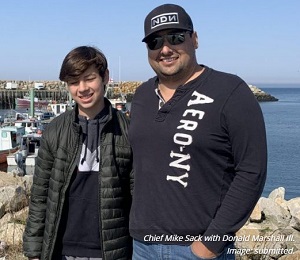
Sipekne’katik Chief Threatening To Disrupt Commercial Lobster Fishery This Year
“If they can interfere with our fisheries, we’re going to start rallying up and blocking all of their wharves,”,, Sack says that on October 30, he spoke with a regional director of fisheries management for DFO. The director, according to Sack, informed the Chief that any untagged Mi’kmaq lobster traps would be confiscated. Commercial fishermen are claiming, however, that the Band has increased its fishing in the lobster breeding ground in recent days. On October 29, in a letter to Bernadette Jordan, several fishermen’s groups claimed the federal government is doing nothing to stop the unregulated fishery. >click to read< 11:36
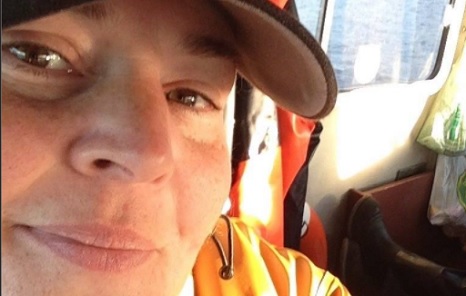
Envelope pushed in St. Marys Bay and Digby folk pushed into a corner – Susan Beaton
So now that the dust is starting to settle, righteous keyboard warriors can take a breather. So let’s try to give the people of Digby County and St. Marys Bay some consideration. Terrible things were said and done this month to the Sipekne’katik First Nation people and to those who supported them. No apologies here for the bad behaviour. But consider for a moment what it’s like for a small village, its lifeblood on the line, as a fight for treaty rights plays out on its doorstep. Sipekne’katik wanted to push to the forefront the “moderate livelihood” debate, as many bands in other areas are doing as well. This tiny bay became a focus of that effort. What happened next is a bit more dubious. By Susan Beaton, >click to read< 09:23
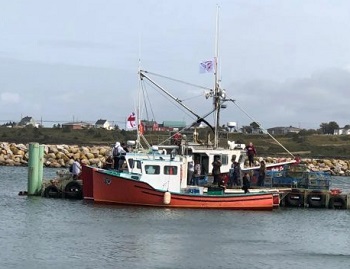
A new current in the Nova Scotia lobster dispute – Local First Nation says Sipekne’katik did not consult them before launching
The ongoing dispute over Indigenous fishing rights in Nova Scotia has seen a new player emerge to add to the troubled waters. This time however, it might be seen as veiled criticism by one band of the actions of the other.,, The new player in the dispute is the local Bear River Mi’kmaw band who are actually the band closest to St Mary’s Bay in southwestern Nova Scotia. On the other hand, the Sipekne’katik who are at the heart of the dispute, are based over 250 km away in the central part of the province. >click to read< 14:30
Mi’kmaw band raises concerns about Sipekne’katik lobster fishery – In a letter sent to media and addressed to federal Fisheries Minister Bernadette Jordan, Sipekne’katik Chief Mike Sack and other Indigenous leaders, Bear River Chief Carol Dee Potter said her community has fished St. Marys Bay “since time immemorial,” but they’ve recently been disrupted. “Over the last few weeks, our fishers have been forced out of this area due to the ongoing dispute,” >click to read<






